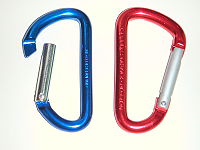
Photo from wikipedia
Corrosion and dendritic deposition have been the long‐standing interfacial challenges of Zn anode, resulting in the deterioration of the aqueous zinc‐based batteries. Herein, the surface of Zn metal anode is… Click to show full abstract
Corrosion and dendritic deposition have been the long‐standing interfacial challenges of Zn anode, resulting in the deterioration of the aqueous zinc‐based batteries. Herein, the surface of Zn metal anode is pioneeringly reconstructed by a cerium‐based conversion film (Zn@CCF) through a chemical conversion method. Faster growth of the film in the vicinity of zinc grain boundaries significantly prevents the substrate from genetic micro‐corrosion that leads to catastrophic damage. The affinity of the film toward zinc facilitates a low nucleation barrier and smooth zinc deposition. Consequently, Zn@CCF enables long‐term lifespan (1200 h) with low polarization (≈60 mV) at 4.4 mA cm−2, which also maintains good capacity retention and excellent cycling stability of Zn@CCF/MnO2 full cells. This facile and effective approach helps suppress Zn dendrite formation and brings forward the significance of surface reconstruction of the Zn metal anode for corrosion inhibition, which can be potentially applied to other metal anodes in aqueous energy storage systems.
Journal Title: Advanced Functional Materials
Year Published: 2021
Link to full text (if available)
Share on Social Media: Sign Up to like & get
recommendations!